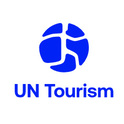Research Shows Strength Of Tourism Sector’s Support For Workers And Communities
Employers from across global tourism are taking the lead in supporting their workers and helping the communities in which they operate, research carried out into the sector's response to COVID-19 has found.
As the sector faces up to an unprecedented challenge, the World Committee on Tourism Ethics (a subsidiary of the World Tourism Organization) has analysed the steps being taken by businesses and trade associations to mitigate the impact of the pandemic. Studying the actions taken by Private Sector Commitment to the Global Code of Ethics for Tourism (GCET) in 25 countries, the research revealed that, in spite of staff furloughs, employers across the sector are stepping up their support for workers and for communities.
Tourism 'going beyond its responsibilities'
Committee Chairman Pascal Lamy touched base with the GCET Signatories to learn about the mitigation actions being championed by tourism companies and trade associations. Mr. Lamy said: "It is evident that the sector's engagement goes beyond symbolic CSR actions. The GCET signatories, although hit terribly hard by the crisis like their colleagues across the tourism sector, have shown that they indeed care for the societies they operate in while striving to keep their businesses afloat".
World Tourism Organization (UNWTO) Secretary-General Zurab Pololikashvili welcomed the initiative of the tourism sector while at the same time calling on governments to work with private employers to safeguard jobs and livelihoods. He said: "Governments should not abolish the resources already allocated to tourism in their budgets for 2020. Tourism administrations also need to communicate to the general public what the sector is doing for the society in these troublesome times."
Solidarity with Tourism Workers and Communities
The survey found that many companies are providing 24-hour psychological help for their employees, while also maintaining medical insurance and facilitating platforms with motivational videos, medical updates and training. Many are also offering free lodging and food for stranded international staff and their families.
Monetary donations have been given to city councils, underprivileged families and rural communities, and food and supplies have been sent to frontline workers and vulnerable groups. Some businesses chambers are working with public, real estate, financial and legal entities to provide SMEs with funding and identify guarantors for those unable to receive a loan. Associations have engaged in local pandemic committees to flag up the most pressing issues and better articulate their support.
Hotels have donated thousands of gift nights to medical staff for their holidays and remained open for them and COVID19 patients whenever necessary. Guides offered virtual tours for voluntary contributions donated to hospitals, and transportation companies offered their channels to bring critical emergency equipment to save lives. Volunteer platforms also have been set up to create youth loans. Virtual solidarity groups gathered hundreds of travel agents with multiple jobs to exchange goods and support their livelihoods.
About UN Tourism
The World Tourism Organization (UN Tourism) is the United Nations agency responsible for the promotion of responsible, sustainable and universally accessible tourism.
As the leading international organization in the field of tourism, UN Tourism promotes tourism as a driver of economic growth, inclusive development and environmental sustainability and offers leadership and support to the sector in advancing knowledge and tourism policies worldwide.
Our Priorities
Mainstreaming tourism in the global agenda: Advocating the value of tourism as a driver of socio-economic growth and development, its inclusion as a priority in national and international policies and the need to create a level playing field for the sector to develop and prosper.
Promoting sustainable tourism development: Supporting sustainable tourism policies and practices: policies which make optimal use of environmental resources, respect the socio-cultural authenticity of host communities and provide socio-economic benefits for all.
Fostering knowledge, education and capacity building: Supporting countries to assess and address their needs in education and training, as well as providing networks for knowledge creation and exchange.
Improving tourism competitiveness: Improving UN Tourism Members' competitiveness through knowledge creation and exchange, human resources development and the promotion of excellence in areas such as policy planning, statistics and market trends, sustainable tourism development, marketing and promotion, product development and risk and crisis management.
Advancing tourism's contribution to poverty reduction and development: Maximizing the contribution of tourism to poverty reduction and achieving the SDGs by making tourism work as a tool for development and promoting the inclusion of tourism in the development agenda.
Building partnerships: Engaging with the private sector, regional and local tourism organizations, academia and research institutions, civil society and the UN system to build a more sustainable, responsible and competitive tourism sector.
Our Structure
Members: An intergovernmental organization, UN Tourism has 160 Member States, 6 Associate Members, 2 Observers and over 500 Affiliate Members.
Organs: The General Assembly is the supreme organ of the Organization. The Executive Council take all measures, in consultation with the Secretary-General, for the implementation of the decisions and recommendations of the General Assembly and reports to the Assembly.
Secretariat: UN Tourism headquarters are based in Madrid, Spain. The Secretariat is led by the Secretary-General and organized into departments covering issues such as sustainability, education, tourism trends and marketing, sustainable development, statistics and the Tourism Satellite Account (TSA), destination management, ethics and risk and crisis management. The Technical Cooperation and Silk Road Department carries out development projects in over 100 countries worldwide, while the Regional Departments for Africa, the Americas, Asia and the Pacific, Europe and the Middle East serve as the link between UN Tourism and its 160 Member States. The Affiliate Members Department represents UN Tourism's 500 plus Affiliate members.
UN Tourism Communications Department
+34 91 567 8100
UN Tourism
